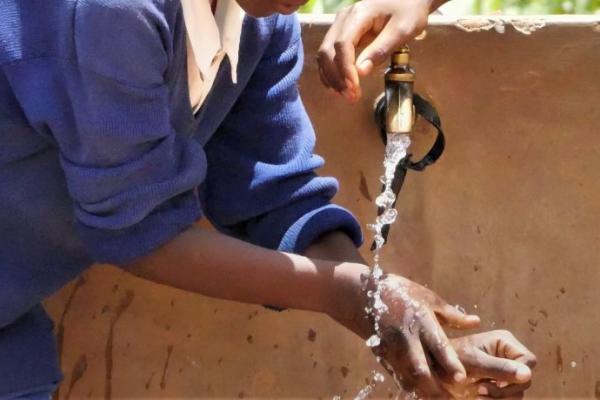MICHELLE BRKLJACIC
Like the rest of the world, the COVID-19 pandemic has affected GWI’s work. Travel and public gathering restrictions in Tanzania have impacted our partners’ ability to work, further compounding an extremely heavy rainy season that has caused destructive flooding in our partner communities.
Work to complete installation of sustainable water systems in 15 villages through the WADA project, originally scheduled for the end of May, will likely be extended into the summer (or beyond, if social distancing and travel restrictions persist).
Despite progress slowing, our collaborations continue through virtual methods, and our partners are eager to move work forward.
Endline surveys to evaluate outcome measures for both the SVWS pilot and WADA projects will be carried out once restrictions imposed by COVID-19 are lifted. Evaluation indicators include the incidence of water-related illness reported at health facilities, number of new women-owned businesses, school attendance rates, average sales of crops over the past six months, and yield of high nutrition crops for smallholder farmers.
As we consider the COVID-19 pandemic’s impact on our current operations and project plans, we recognize that there is even greater urgency to conduct our work. The pandemic puts into sharp focus the critical need for reliable access to clean water, sanitation, and hygiene activities globally.
Currently, there is vast disparity in the capacity of countries to mobilize and respond in this crisis. The wealth and existing infrastructure within each country will ultimately dictate the human loss suffered by each nation. The most important action an individual can take to prevent the spread of infectious disease is appropriate handwashing. Healthcare facilities and healthcare workers, burdened with increasing caseloads, must ensure that their instruments and treatment centers are regularly cleaned and sterilized. Communities without ready access to clean water or appropriate sanitation and hygiene facilities cannot undertake these most basic precautions.
COVID-19 may have caught the world off guard, but water-borne disease, Ebola, dengue, and other infectious diseases are constant threats in East Africa. As the world fights COVID-19, we hope that nations and funding agencies strengthen their commitments to the U.N. Sustainable Development Goals and to the provision of clean water, food, sanitation, and hygiene as a major defense against the next pandemic. The time is now to invest in a diverse portfolio of projects and activities related to public health that give us a better foundation from which to wage the next war on a pandemic in East Africa or around the globe.

